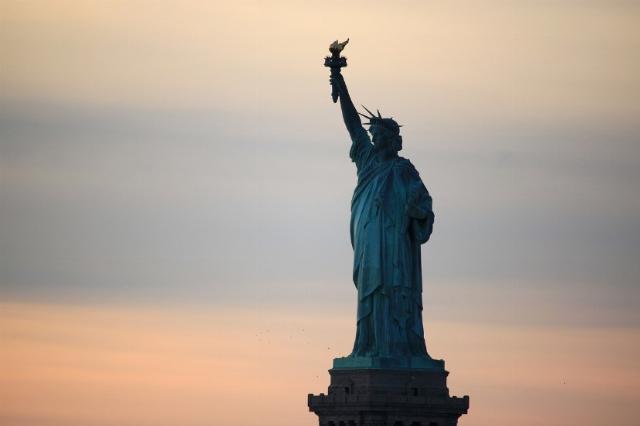by J.B. Shurk, American Thinker:

It is a crazy time to be alive. We have economic uncertainty, threats of war, political violence, and social turmoil. An assassin nearly took President Trump’s life. Puppet President Biden has been recycled for a younger model. The Olympic Games openly mocks Christianity and celebrates transvestitism. The EU, Russia, China, Iran, Israel, and the U.S. are all tiptoeing toward a little nuclear tête-à-tête. Apprehension saturates the air.
TRUTH LIVES on at https://sgtreport.tv/
Still, if you were a time-traveler from the future surveying the world as it unfolds today, you might whisper, “What an amazing time to be alive.” That is a luxury that those who look back through history often enjoy. Those living through chaos rarely write about trying times as marvelous adventures. They are too busy struggling to survive.
I do not wish to minimize the struggles that we will continue to experience, but I do want to take a small step back and recognize this moment for what it is: a hinge on the door of history opening up a new era for humanity. The hallway we’ve been walking down for many decades has come to an end. The door before us is shaking loudly as we fight for what reality will take shape on the other side. Our situation is perilous and consequential.
Future generations — buttressed by a misguided belief that their world was always foreordained — will dream about having been alive in our time, just as many of us have contemplated what it would have been like to fight in the trenches of WWI, endure the volatile interwar period, or beat back totalitarianism in the mid-twentieth century. Ours is not an easy time…but it is one ripe with significance.
Is this a contest between communism and capitalism? Is it a war between West and East? Is it a clash of civilizations, cultures, religions, and traditional beliefs? It is all of that and more. At its heart, the revolution that is picking up speed throughout the world centers on one essential conflict: state supremacy versus individual freedom.
The war that has already begun is the mechanism for answering a straightforward question: how much liberty will each of us be “allowed” to possess, and how much control will governments maintain over their respective populations? As with all wars, this one concerns the exercise and retention of power. Somewhat uniquely, however, our war will decide whether we individual humans are ultimately sovereign arbiters over the direction of our personal lives, or whether we are disposable cogs in an all-powerful government machine.
This war is not debated on the nightly news. It is not the storyline of the next big hit on Netflix. The publishing industry does its best to censor and blacklist any authors asking probing questions regarding the war’s numerous engagements. It is far easier to deprive people of their freedoms when they are preoccupied with seemingly life-and-death distractions. Can “defenders of democracy” save Ukraine from Vladimir Putin? Will a new killer virus bring a return of masks and mandates? Can government agencies “save” citizens from the dangers of “disinformation”? Corporate media may dedicate thousands of on-air hours to the scourge of “right-wing” political parties, but they rarely highlight the abiding menace of government power. “Totalitarianism” is discussed as a disease that was heroically vanquished last century, instead of as an illness that is rapidly spreading in the current one.
Not so many decades ago, American citizens shared a common understanding that government is a necessary evil — something that exists to preserve Americans’ freedoms and not as something that should be celebrated in and of itself. The Fourth of July, after all, has always been a holiday for remembering our ancestors’ rejection of government tyranny and their principled defense of inalienable rights. People do not shoot off fireworks in honor of the Department of Homeland Security or give rousing, patriotic toasts to commemorate the formation of the Internal Revenue Service. Towns do not organize parades so that citizens can pay tribute to the Federal Bureau of Investigation or the Central Intelligence Agency. Independence Day is not a time for praising the federal government; it is a patriotic festival for remembering liberty’s triumph over government.
Regrettably, the occupying forces in D.C. have done a good job of making that distinction disappear. Years of Marxist inculcation in schools and government agencies have combined with years of mass migration from communist nations to effect a culture shift in support of unconstrained government power in the United States. By the time that shift had become so sizable that people noticed, President Obama was openly mocking proponents of “limited government” as rabble-rousing “anarchists.” His ridicule of Americans who rightly distrust government power marked a recognizable turning point in our nation’s history.
Read More @ AmericanThinker.com



